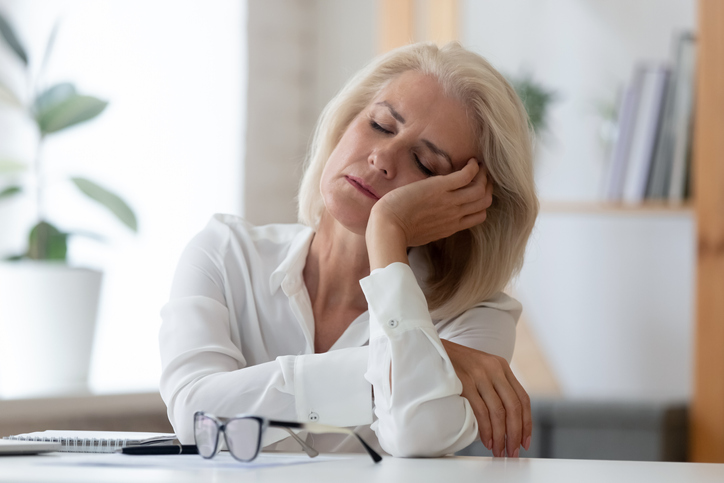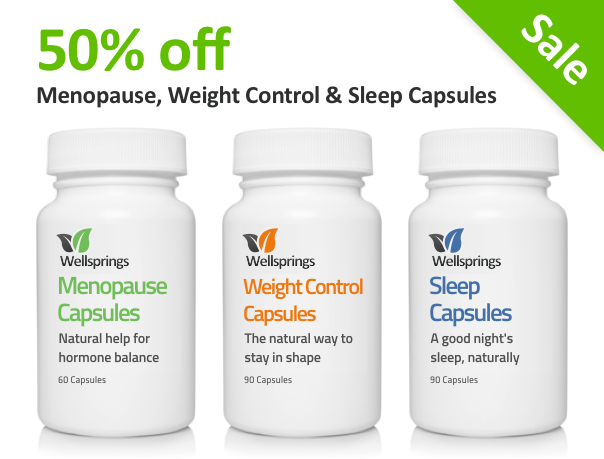How To Help 5 Key Signs Of Anxiety, Low Moods and Depression
Our hormones always affect our moods, from puberty right through to post menopause.

Our hormones always affect our moods, from puberty right through to post menopause. Hormone balance is critical in being able to deal with these shifts and sudden changes in energy and can if left untreated result in severe anxiety and even depression.
It seems that such anxiety and depression is common, affecting about 340 million people worldwide, but that about half of all cases of depression go undiagnosed and unaddressed.
We all get anxious or sad when stressed or faced with life changes such as menopause, retirement, personal grief from relationship and loss. If we can accept that these are a normal part of life then we can begin to take control of them.
Common signs of anxiety and depression and how to help
At menopause in particular certain conditions are common, and you may have some or indeed all of them but there is help are available.
1. Feelings of overwhelm, low mood and anxiety
Sometimes it can all seem too much to deal with and if this condition persists beyond a few weeks then seeing a counsellor or doctor may be helpful.
However US Dr Jeffrey Dach has investigated the role of bioidentical hormones for this and came to the conclusion that rebalancing with a combination of both progesterone and oestrogen was helpful for many women.
2. Loss of libido
This can be a tricky one to get right as so many factors, both physical and emotional, can be involved and many women do experience a drop in desire due to fatigue, hormonal fluctuations and sometimes physical discomfort if less oestrogen is available for lubrication.
Bioidentical progesterone can increase sex drive in women, but if you also have vaginal dryness you may find a combination cream such as 20-1 more effective as that has both progesterone and oestrogen.
You may also want to see if using a separate bioidentical oestrogen cream from Wellsprings with Serenity may be more helpful to vary the dosage according to your individual needs.
3. Change in sleeping patterns
Hot flushes and night sweats alone can disturb your sleep, plus more frequent visits to the bathroom, all contribute to you getting less than the recommended 8 hours.
Disturbed sleep affects every bodily function so bioidentical progesterone and a specially designed herbal supplement to aid sleep can help.
4. Brain fog and poor concentration
When we are anxious and stressed then cortisol is released by the adrenal gland.This triggers your ‘flight or fight’ response so blood flows away from areas like the stomach and brain and into the muscles and nerves.
Very high cortisol can cause an inability to focus and blocks progesterone and thyroid, which is one of the reasons you can have symptoms of low thyroid or progesterone and test normal for them.
Low progesterone is linked to oestrogen dominance, which can cause foggy thinking and memory loss but often the right nutrition and progesterone supplementation can help.
5. Stressed, low energy or feeling run-down
Feeling tired and run down can be related to low thyroid, poor diet (too much sugar and processed foods), not enough exercise and just plain old hormonal havoc as your body is constantly shifting.
Stress is a very important element here and if you are under constant stress then your adrenals are going to be always on the alert and this can culminate in them becoming worn out and exhausted.
This needs serious attention so check your symptoms and start making the small changes that can make a difference.
The role of hormone balance
All these factors will affect how well your hormones are coping, so check regularly for symptoms that might indicate oestrogen dominance.
You may not be aware, but even with very low oestrogen you can still be oestrogen dominant if your progesterone levels are lower still. That may need a combination cream to get your nervous system back in balance.
Helpful information
It is clear that hormone imbalance and stress play key roles in triggering some of the more common symptoms of anxiety and depression.
If you are not sure which hormone or hormones you might need then this article can help.
https://anna.blog.wellsprings-health.com/which-hormone-or-hormones-might-you-need/

















